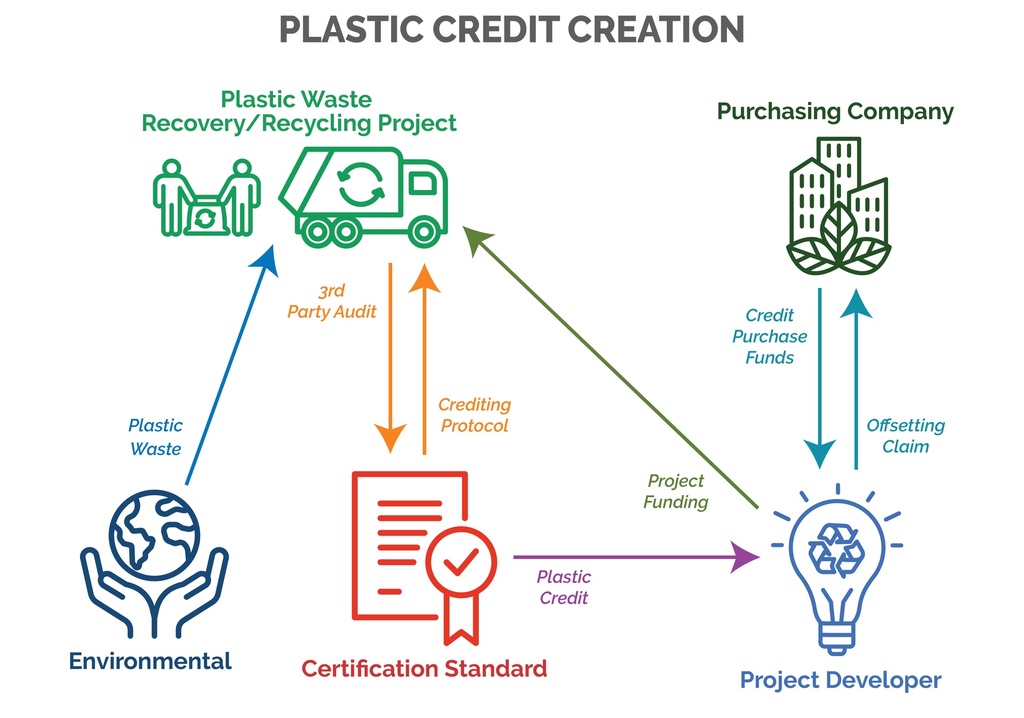Plastic Credit
•Traceable by weight
•Avoid exportation in low income countries
•By-product for clean fuel (H2) and recovered Carbon Black
•200$ After Discount, 300$ Before Discount Per Ton
The plastic credit market is a system where companies or organizations can buy "plastic credits" to offset their plastic footprint. These credits are issued by projects that collect, recycle, or otherwise responsibly dispose of plastic waste. It's similar to the carbon credit market, but instead of offsetting carbon emissions, it addresses plastic pollution.
How It Works
- Plastic Collection & Recycling Projects
- Companies engage in collecting and recycling plastic waste.
- They receive certification from third-party bodies to verify their impact.
- Based on the amount of plastic removed or recycled, they are awarded plastic credits.
- Companies Buy Credits
- Companies looking to offset their plastic use purchase these credits.
- Each credit usually represents a specific weight of plastic waste removed or recycled (e.g., 1 credit = 1 kg of plastic).
- This helps them meet sustainability goals or regulatory requirements.
- Impact & Verification
- Independent third-party organizations verify the effectiveness of plastic credit projects.
- Buyers can claim they are “plastic neutral” or reducing their plastic impact.
Benefits of the Plastic Credit Market
 Encourages Plastic Waste Management
Encourages Plastic Waste Management
- Creates financial incentives for companies and communities to collect and recycle plastic.
 Supports a Circular Economy
Supports a Circular Economy
- Helps fund waste management systems, making plastic recycling more viable.
 Corporate Sustainability & Compliance
Corporate Sustainability & Compliance
- Companies can demonstrate responsibility in reducing plastic waste.
 Empowers Local Communities
Empowers Local Communities
- Many credit projects operate in developing regions, creating jobs and reducing pollution.
 Reduces Environmental Impact
Reduces Environmental Impact
- Supports the cleanup of oceans, rivers, and landfills, tackling plastic pollution directly.
Companies involved in chemical recycling of plastic can benefit from the plastic credit market, but it depends on the certification standards and methodologies used by the issuing organizations.
How Chemical Recycling Fits Into Plastic Credits
Chemical recycling (also known as advanced recycling) breaks down plastic waste into its molecular components, allowing it to be reused in making new plastics. Since this process helps reduce plastic waste and promotes circularity, it aligns with the goals of the plastic credit market.
Ways Chemical Recycling Companies Can Benefit:
- Generating Plastic Credits
- If a company’s chemical recycling process is certified by organizations like Verra’s Plastic Waste Reduction Standard or Circular Action Hub, they can issue plastic credits.
- The credits are based on the amount of plastic waste diverted from landfills, incineration, or the environment.
- Selling Credits to Other Companies
- Companies that need to offset their plastic footprint can buy credits from chemical recyclers, creating a revenue stream for recycling businesses.
- Access to Funding & Investments
- Being part of a certified plastic credit system makes it easier to attract impact investors and corporate sustainability funding.
- Regulatory & Compliance Benefits
- Some governments and industries are incentivizing chemical recycling. Earning plastic credits could help meet sustainability regulations or goals.
- Generating Plastic Credits
